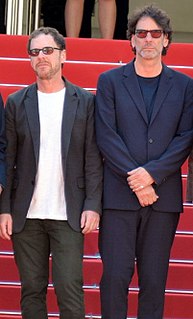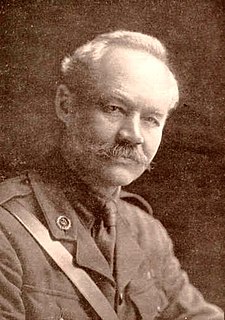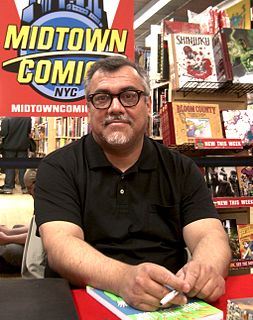A Quote by Joel Coen
Our mother was a very religious and observant Jew, our father less so. She was kind of driving the religious education, so for us it was more a burden and an obligation when we were kids at that age.
Related Quotes
I've known a lot of very religious people. My mother is very religious, but she was also very - is very private about it. She - when I was growing up, she never went to church. She just prayed and read her Bible and kept it to herself. So I'm not from a background of flamboyant believers. It's much more a personal issue.
It is taboo in our society to criticize a persons religious faith... these taboos are offensive, deeply unreasonable, but worse than that, they are getting people killed. This is really my concern. My concern is that our religions, the diversity of our religious doctrines, is going to get us killed. I'm worried that our religious discourse- our religious beliefs are ultimately incompatible with civilization.
Right now, our mother -- our mother -- all of our mothers, Mother Earth is hurting. And she needs a generation of thoughtful, caring and active kids like all of you to protect her for the future. You can help us win the battle to clean up our air, our water, our land, to protect our forests, our oceans and our wildlife.
No pain that we suffer, no trial that we experience is wasted. It ministers to our education, to the development of such qualities as patience, faith, fortitude and humility. All that we suffer and all that we endure, especially when we endure it patiently, builds up our characters, purifies our hearts, expands our souls, and makes us more tender and charitable, more worthy to be called the children of God . . . and it is through sorrow and suffering, toil and tribulation, that we gain the education that we come here to acquire and which will make us more like our Father and Mother in heaven.
No one can write their real religious life with pen or pencil. It is written only in actions, and its seal is our character, not our orthodoxy. Whether we, our neighbor, or God is the judge, absolutely the only value of our religious life to ourselves or to anyone is what it fits us for and enables us to do.
The religious geniuses of all ages have been distinguished by this kind of religious feeling, which knows no dogma and no God conceived in man's image; so that there can be no church whose central teachings are based on it. Hence it is precisely among the heretics of every age that we find men who were filled with this highest kind of religious feeling and were in many cases regarded by their contemporaries as atheists, sometimes also as saints. Looked at in this light, men like Democritus, Francis of Assisi, and Spinoza are closely akin to one another.


































